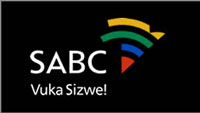
Top stories






More news

Marketing & Media
Ads are coming to AI. Does that really have to be such a bad thing?















At a time when interest in Bafana Bafana is at an all-time high, the public broadcaster failed to fulfill its mandate and, in doing so, failed the national team and the people of this country.
But thanks to social networks, those wronged have a platform to make their voices heard. Once the SABC confirmed it would not be showing the big game, the Twittersphere went into overdrive as ordinary folk vented their frustration at yet another instance of that very special South African style of incompetence.
But the SABC's latest howler could not have come at a more inopportune time for it. As Business Day's excellent columnist Mninawa Ntloko reported in September 2010, the SABC's broadcast monopoly over Bafana fixtures is under serious threat.
The current deal between the two parties, which was penned in 2005, expires in April 2011. And since SAFA makes no profit out of the contract, which the body's CEO Leslie Sedibe calls "ludicrous", the football governing body is eager "to take their business elsewhere".
He who has the rights isn't always right
Predictably SuperSport has been touted to fill the void and take over the broadcast rights, much to the government's chagrin because it believes satellite television to be too elitist. But part of the SABC's problem this weekend ostensibly related to complications with the broadcast rights. The Sowetan revealed on Monday 11 October that the rights owners, "a third party group", demanded from the SABC an "exorbitant" fee in order for it to acquire said rights for the away game in Freetown.
SABC spokesperson Kaizer Kganyago told the aforementioned newspaper that the contract was tied up by Friday and ultimately the SABC said "the delay in transportation of its technical equipment" led to the non-broadcast, adding it could not mitigate for the "bad weather" that left its equipment "grounded in Ivory Coast".
After the fiasco the SABC released a brief statement - some of which has been quoted above - that included an apology to the "soccer loving people in the country and elsewhere". But several questions remain unanswered.
Why, for example, did the SABC wait until the 11th hour to ink a broadcast deal with this "third party"? Furthermore, SAFA offered the SABC seats and space on its chartered flight which left South Africa for Sierra Leone on Friday, an offer it was forced to turn down owing to issues with the technical crews' visas.
Of course, the people of South Africa have every right to ponder why the SABC failed to make the necessary logistical arrangements in a timely and efficient manner, because if it had done so, the embarrassing saga would never have unfolded.
Thanks to Twitter, hundreds, if not thousands, of ordinary citizens organised an open rebellion against the SABC. Employees of the broadcaster were conspicuously present in the debate, with one alleging in a tweet that the SABC was lying about the equipment being stranded in Ivory Coast. The tweet also alleged that the equipment was at SABC headquarters because the organisation failed to acquire the rights.
Every effort was made to contact Kganyago, the broadcaster's spokesperson, to pose these allegations to him but these attempts were unsuccessful.
Meanwhile, SABC1's special projects manager, Leo Manne, made his presence known on Twitter on Sunday by doing his utmost to defend his employer and, quite audaciously, even went on to advertise some new shows that will be hitting SABC's screens later this week. Popular blog site Just Curious has a detailed analysis of Manne's damage control exercise - an exercise that failed to impress on the social networking platform.
An angle used by Manne that caused particular ire was his statement that "when it was not cool to be a Bafana fan the SABC still put the Bafana games on air". The absurdity of this view need not be emphasised, although it is appropriate to suggest that the SABC should be doing everything in its power to retain the new Bafana fans garnered during the 2010 FIFA World Cup. Manne was not willing to comment further on Monday.
SAFA's hierarchy was blunt in its appraisal of the SABC's ineptitude. The CEO, Sedibe, said, "The leadership of SAFA will seek an urgent meeting with the SABC as we view this breach of contract in a serious light."
And the governing body's president, Kirsten Nematandani, echoed this view and said, "We can't afford to disappoint millions of passionate Bafana supporters; and as result we need to meet the SABC."
While many fans say they want SuperSport to acquire the rights for Bafana games, the lack of access to DStv amongst the majority of South Africans remains a massive stumbling block - even if SuperSport has proved its commitment to local football with its five-year R1 billion deal to televise Premiership matches, a deal that the SABC vehemently opposed back in 2007 when it was penned.
Nonetheless, the SABC has proved it's not up to the task, which makes it untenable for it to retain exclusive rights to Bafana Bafana games. The government and the public broadcaster's argument that it is entitled to the rights because it alone can guarantee that the majority of people can watch the national team is patently invalid. e.tv should make a case for itself and claim it can do a better job, while a rights-share with SuperSport is clearly another tenable option. And, even if SuperSport claimed exclusive rights, at least some South Africans would be able to see Bafana live, rather than none at all.
